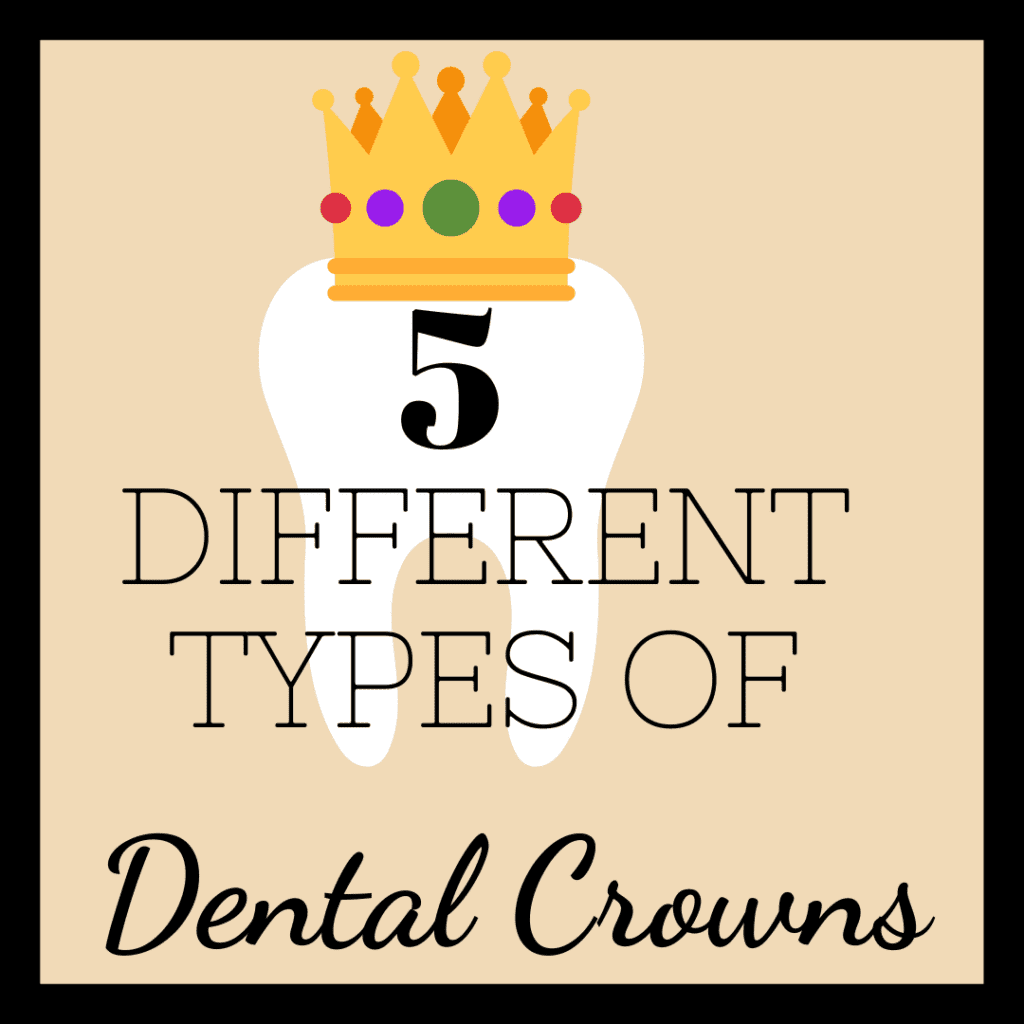Although the term “dental crown” makes it sound like a tiny crown for your tooth, dental crowns are caps that fit over the tooth. Dental crowns are called as such because they fit over the visible portion of the tooth, which is called the crown. They are a restorative dental prosthesis used to restore decayed and damaged teeth that require additional support for maintaining their function. They are also commonly used in coordination with dental implants to fill in gaps left by missing teeth.
Since dental crowns are placed over an existing tooth, the natural tooth structure must be reduced and shaped for the artificial crown to keep the bite even once the crown has been placed. While the affected tooth is reduced and shaped, the tooth and surrounding area will be numb. After the tooth has been properly prepared, a dental impression or oral scan will be taken. This information is then sent to a dental laboratory or used with an in-office milling machine to fabricate the dental crown. Once the permanent dental crown is complete, it will be checked for fit and cemented into the mouth.
Here are the five different types of dental crowns:
1- All-Resin Dental Crowns
In the short-term, all-resin dental crowns are one of the most affordable dental crowns. They are fabricated from dental composite resin and can be color-matched to blend in with the surrounding teeth. They also require minimal tooth preparation. However, they are not always the best long-term solution because they are weaker than other types of dental crowns and more susceptible to damage.
2- All-Porcelain Dental Crowns
All-porcelain dental crowns, also sometimes referred to as all-ceramic crowns, are fabricated using porcelains and ceramics. They are entirely metal-free and are a good choice for those with allergies to metal. Porcelain crowns can be color-matched to the teeth and are sometimes used for cosmetic dental treatments to improve the size, shape, or color of teeth. However, porcelain crowns lack the strength of metal and PFM crowns, and they have been known to wear down the opposing teeth.
3- Porcelain Fused to Metal Dental Crowns
Porcelain fused to metal crowns, more simply known as PFM crowns, are fabricated using a metal base with porcelain fused over the top. The final result is a dental crown that looks porcelain, but has the strength of a metal crown. PFM crowns are popular choices for individuals who want to avoid the metallic look of a metal crown, but desire the strength. However, the porcelain can cause faster wear on opposing teeth and the metal ring may be visible if the gums recede.
4- Metal Dental Crowns
Metal dental crowns are entirely made out of metal and have a metallic appearance. There are different metals that can be used to fabricate metal crowns, including gold, platinum, copper, and base metals such as cobalt-chromium and nickel-chromium. In most cases, metal crowns are a mix of a precious metal with a base metal alloy. Metal crowns are an ideal choice for restoring molars because they are extremely strong, but do not wear out the opposing teeth. In the back of the mouth, they are also not visible when smiling. In addition to their metallic appearance, another downside of metal crowns is the fact that they corrode over time.
However, a new type of metal crown has been introduced called a Bruxzir crown. Bruxzir crowns are fabricated from zirconia, which is a member of the titanium family. In most cases, Bruxzir crowns are offered as same day dental crowns that have the strength of metal, an aesthetic appearance, and are porcelain-free.
5- Stainless Steel Dental Crowns
Stainless steel dental crowns are used mainly for restoring primary teeth in children that have undergone pulp therapy, or baby root canals. They do not last long and are intended to be lost with the primary tooth. If a temporary crown is needed to protect the tooth between its preparation and the placement of the permanent crown, then a stainless steel crown may also be used.
The five different types of dental crowns, all-resin, all-porcelain, porcelain fused to metal, metal, and stainless steel, each offer a slightly different approach to restoring damaged and decayed teeth. Certain materials may work better than others for certain cases, so speaking with a general dentist is the best way to determine which type of dental crown is best suited to your needs. Although dental crowns are not tiny crowns for your teeth, they are still an important accessory that sits on top of your tooth.

